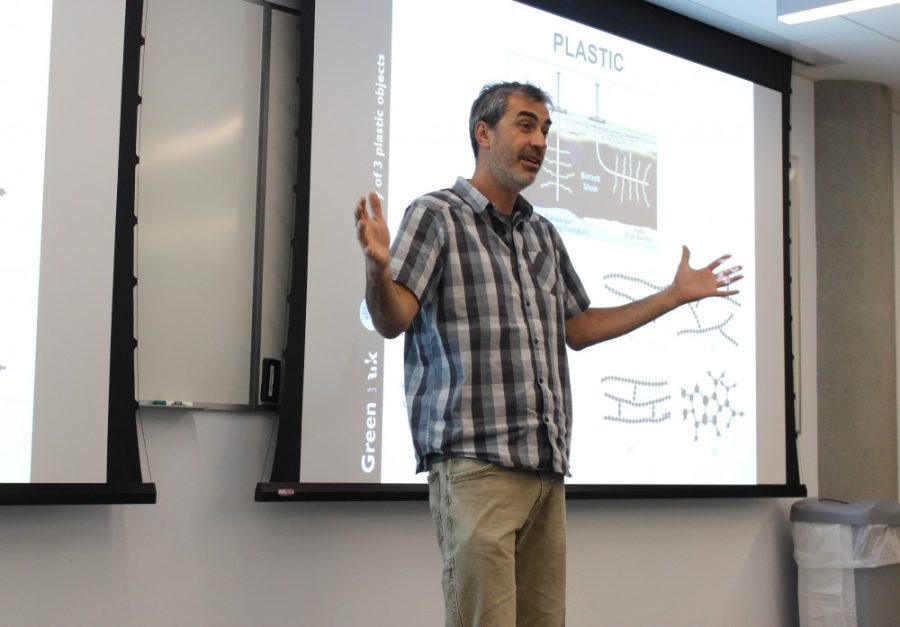The UA SolarCats hosted a Green Talk Wednesday night in conjunction with UA professors that focused on educating students on climate change and sustainability.
The first presentation was given by John Pollard, Associate Professor of Practice of Chemistry & Biochemistry.
“As we consider reducing our carbon footprint, we usually focus on burning oil as fuel but a significant amount of oil we pull out of the Earth becomes plastic,” Pollard told the students.
The production of plastics has increased 20 times since 1960, and by 2050 the number of plastic bottles and fish in the ocean will be equal.
According to Pollard, the 40 percent of plastics put in landfill “will be around in a pretty recognizable form in a thousand years.”
RELATED: Student teams pitch plans for Rooftop Garden Competition
Only 10 percent of plastics are actually recycled, according to Pollard. Conversely, the size of the plastic island in the Pacific Ocean is the size of Rhode Island.
Pollard said he believed lowering consumption, not increasing recycling, is the most practical way to address this problem.
“Go a week, or a month, without using a plastic water bottle,” Pollard challenged students.
He asked students to make conscious decisions about their plastic use and convince a friend to do the same.
David Moore, Associate Professor in the School of Natural Resources and the Environment, believes preventing deforestation and sustainable forest policies is the best way to control carbon dioxide in the atmosphere.
“We have a good sense of fossil fuel being burned and how much carbon dioxide should be ending up in the atmosphere but we observe less,” Moore said.
Moore’s research suggests planting trees with larger carbon sinks, which have longer life spans, is the best way to approach forest sustainability.
RELATED: Aquaponics grows in Tucson with EcoGro

Chris Scott, Research Professor for the Water Resources Policy Udall Center, gave the third and final presentation of the night.
Scott began his presentation by surveying the grades and colleges of the students in the room.
“Recognize you are sitting next to someone who has something to offer,” Scott told the students. He believes the issues of energy and climate policy truly require an interdisciplinary perspective.
The number one single energy consumer in Arizona is the Central Arizona Project canal. Water that comes from the taps at UA for an affordable price travels 360 miles across desert terrain and thousands of feet uphill, Scott said.

Energy choices, such as solar and nuclear, are tied up in water footprints as well Scott said.
Growing food locally, as opposed to commercially, can also reduce water use. In Scott’s experience, agriculture is the number one consumer of water in areas.
He and a colleague examined the potential for solar power replacing coal on local Navajo reservations.
“Until you understand some of the policy, adoptions and cultural dimensions, you cannot just do the calculation and say solar could be the solution for the future for Navajo reservation,” Scott said.
Scott left the students by saying solar is definitely the future in Arizona, but there are more complicated policy nuances involved than just the science and calculations.
Follow Randall Eck on Twitter.









